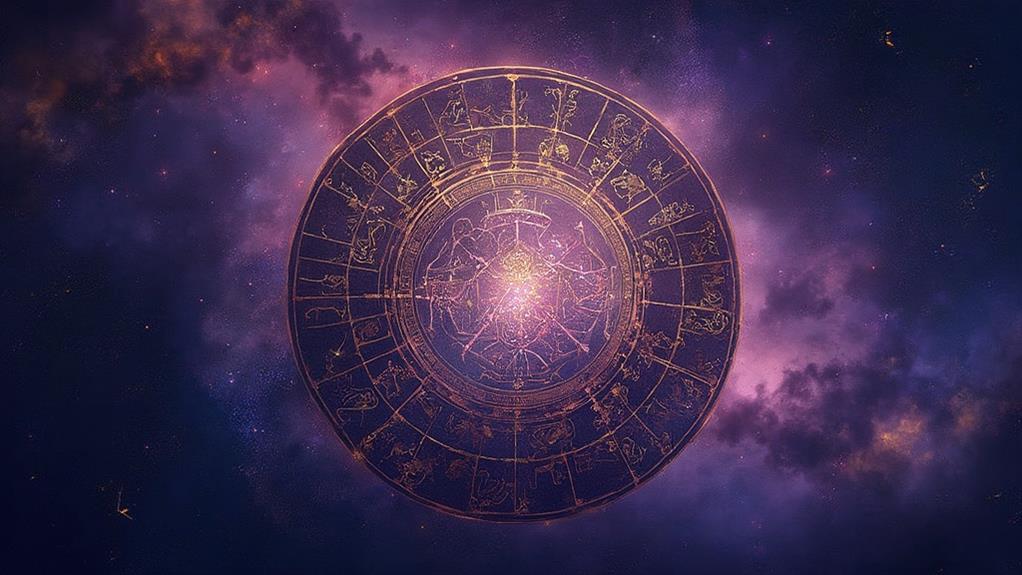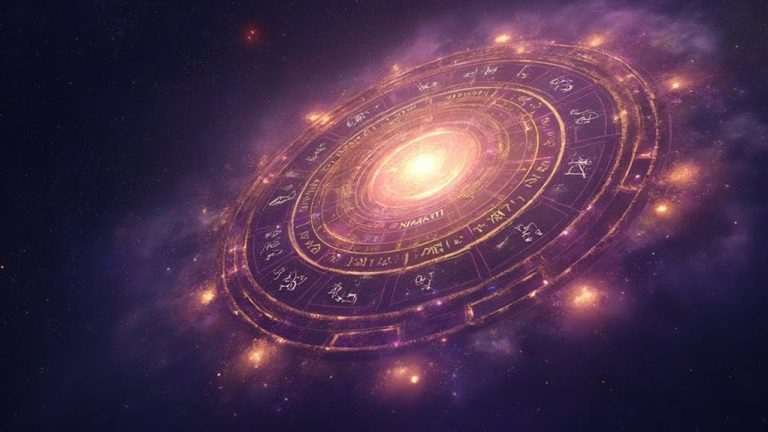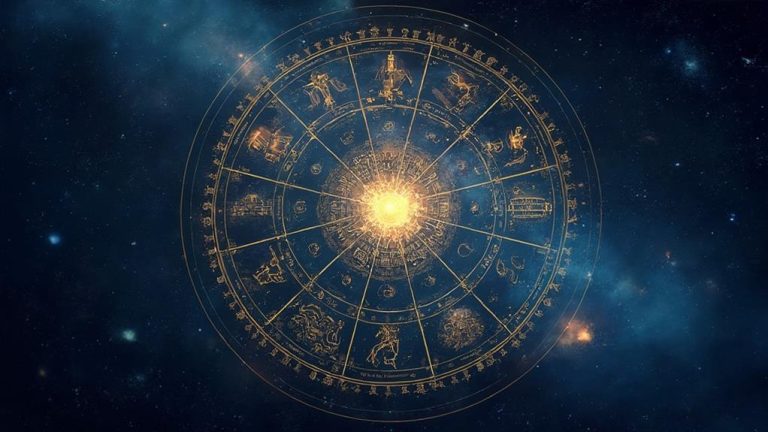Online Courses to Learn Astrology at Your Own Pace

Astrology for Beginners: Kickstart Your Journey
Online astrology courses offer a flexible, self-paced learning opportunity to explore both Vedic and Western astrology. This approach allows you to study celestial patterns while maintaining your daily schedule.
Whether you’re drawn to the Western or Vedic astrology system, these courses provide well-structured learning formats offering clarity without the stress of tracking deadlines. Start your journey and align with the stars at your pace!
Understanding Beginner Astrology Course Platforms

If you’re looking to learn astrology online, there are several course formats available. Options include structured courses, self-paced video libraries, and interactive communities. Structured courses often provide a clear curriculum and guided lessons, ideal for beginners who want to build a strong foundation. Self-paced video libraries, on the other hand, allow learners to explore at their own speed, making them great for busy individuals. No matter which format you choose, it’s essential to seek out reliable astrology learning resources to ensure the information you’re studying is accurate and trustworthy.
Structured programs, such as those provided by Astrology University, offer courses with graded assignments and instructor feedback, perfect for achieving a deeper understanding. Conversely, self-paced platforms like Udemy provide flexibility but may lack depth and personalized feedback.
Interactive communities, like Astrology Hub, blend forums with live expert-led sessions, creating an engaging atmosphere ideal for learners who prefer social interaction and real-time engagement.
Popular Western Astrology Programs
Western astrology courses are diverse, ranging from beginner level to professional certification. These courses teach key concepts like natal chart interpretation and move on to advanced forecasting techniques.
Beginners can start learning the basics of birth charts—the Sun, Moon, and Ascendant—while advanced learners can pursue deeper certifications that prepare them for professional astrology consultations.
Beginner-Friendly Natal Chart Courses
Natal chart courses teach the basics of astrological charts, focusing primarily on the Sun, Moon, Ascendant, and planetary positions in the zodiac. These courses typically provide interactive tools, exercises, and video tutorials to solidify your understanding.
Advanced lessons dive into planetary aspects like trines and squares, showing how they shape personal lives. You’ll also learn about house systems like Placidus and Koch, calculating house cusps and applying this knowledge to life domains like career and relationships. For more insights on how astrology can guide career choices, check out this article on astrology perspective for career choices.
Most beginner courses offer quizzes, downloadable materials, and exercises, ensuring a firm grasp before moving on to more complex chart interpretations. By practicing with real-life chart examples, you’ll gain confidence in interpreting essential natal chart elements.
Professional Astrology Certification Programs
Certification programs, run by organizations like the American Federation of Astrologers (AFA) and the National Council for Geocosmic Research (NCGR), offer structured professional paths.
These programs include advanced topics such as synastry (relationship astrology) and predictive astrology. It generally takes 2-4 years to complete such programs, which include thorough examinations and case studies.
With programs like the AFA’s three-level structure and the NCGR’s four-module course, you’ll study everything from chart reading to financial and psychological astrology. Certifications from organizations like ISAR and FAS add global recognition and specialized credibility.
Vedic Astrology Learning Options

Vedic astrology, rooted in ancient Indian traditions, can be studied online through programs blending traditional teachings with modern technology.
The American College of Vedic Astrology (ACVA) and the Indian Council of Astrological Sciences (ICAS) are leading certification providers. Whether you’re a beginner or looking for advanced certifications, focus on learning Sanskrit and foundational Jyotish concepts.
Ancient Wisdom Meets Technology
Vedic astrology blends ancient teachings with modern tools to make learning easier. You can instantly calculate birth charts with software that replicates traditional methods.
Online courses now offer advanced tools like animated planetary movements, AI-simulated consultations, and virtual workshops led by renowned gurus. These features combine to give learners instant feedback and a hands-on experience with this age-old practice.
Top Vedic Certification Programs
Certifications from institutions like ACVA and the American Institute of Vedic Studies offer structured programs, typically 12-24 months long. These programs cover concepts like planetary periods (dashas), divisional charts, and Sanskrit terminology.
Expect weekly assignments, case study analysis, and one-on-one mentorship from seasoned astrologers. Topics include muhurta (electional timing) and prashna (question-based astrology), enabling accuracy in real-world applications. You’ll complete exams and demonstrate mastery through chart interpretations.
Sanskrit Basics for Beginners
A good foundation in Sanskrit is essential for understanding Vedic astrology properly. Courses generally begin with basic astrological terminology, planetary names (e.g., Surya for Sun), and pronunciation practices.
Use flashcards, audio tools, and script-readers to practice. For deeper comprehension, learning Devanagari script will help you directly read ancient Jyotish texts. These terms play a crucial role in accurate horoscope interpretation.
Intermediate Chart Reading Classes
Intermediate chart reading classes advance your skills from mere natal chart interpretation to understanding patterns like planetary dignity, mutual reception, and dispositors.
You’ll delve into chart complexities like intercepted houses, retrograde planets, and planetary aspects. Practice with various birth charts while learning how transits and progressions indicate life events and personal timing.
These classes emphasize honing your abilities to combine several astrological factors into a comprehensive chart reading for clients, giving you tools for advanced consultations.
Planetary Aspects and Transits

Learning about planetary aspects and transits is essential for predicting life events. Aspects—such as conjunctions, squares, and trines—reflect how planets in a natal chart interact, indicating opportunities or challenges.
You’ll also study transits, which track the ongoing movement of planets in real time, to forecast changes like career shifts or relationship developments. Gaining a strong foundation in aspects and transits will boost your practical astrology applications.
Astrological Houses and Elements
Astrology divides life experiences into 12 houses, each representing a different part of your life, such as career, home, or relationships. Understanding how planets in specific houses influence these life areas is critical.
The four elements—Fire, Earth, Air, and Water—(along with modes, like Cardinal, Fixed, and Mutable types) similarly describe how energy manifests in a chart. Analyzing the interaction between houses and elements allows you to fine-tune chart readings.
Professional Certification Pathways

Achieving professional certification from recognized bodies like AFA, NCGR, or ISAR certifies your skills and sets you apart in the astrology community. Such programs require years of dedicated learning, ethics training, and practical consultations with clients.
Certified astrologers gain credibility, and many programs offer online study options that allow you to meet certification requirements remotely. This credential opens doors to professional consultations, courses, or even teaching roles down the line.
Free Astrology Learning Resources
If you’re not yet ready to invest in a formal course, you can still learn astrology for free online. YouTube channels like Astrology Hub and The Astrology Podcast offer accessible beginner content.
For birth chart tools, check websites like Astro.com, while Reddit’s r/astrology community allows you to participate in discussions and practice readings with peers. Free classic astrology books are also available on Project Gutenberg, and NASA offers scientific information for context.
Advanced Horary Astrology Courses

Horary astrology provides answers to specific questions based on the chart cast at the moment of the query. Mastery of this technique requires extensive study in traditional rule sets and planetary dignity.
Courses last 6-12 months and include topics such as void-of-course moons, Arabic parts, and rulership theories. With expert feedback and practical exercises, you’ll learn to answer complex questions using time-tested astrological principles.







